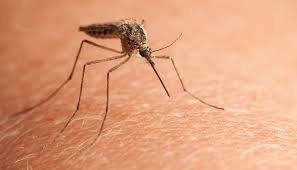
Holiday Vaccinations
Summer is nearly here and we’re all itching to get out of the city and away on our holidays, but before heading off to an exotic destination it is important that get information about the necessary and mandatory vaccinations for travel. After all, you want to enjoy your holidays and not suffer after a mosquito bite or eating something that doesn’t agree with you. ESHA Spain offer helpful advice on vaccinations for travel and a summary of some of the most important vaccines to prevent diseases abroad.
General Information – prevention is better than cure
It is very important that you find all the information you need as early as possible In some cases, you will need several injections and you will have to wait a few days or even months to get the next dose. It is recommended that you contact a doctor or the institute of tropical medicine about six months before your trip to enable you to plan ahead. Forewarned is forearmed and as the saying goes, prevention is better than cure. In addition to vaccinations against diseases, you may also need pills or other drugs that you have to buy in advance.
You may need to take specific medications depending on the country you visit. It is very important that you do not underestimate tropical diseases. Some of the symptoms include fever and breathing problems, so if you have these symptoms and sense something is wrong, consult a Doctor immediately. Don’t panic, listen to common sense and pay attention to your body and, above all, be careful with hygiene. It is very important, especially when it comes to eating. Check that everything is peeled and well cooked. If not, forget it.

Some of the most important Vaccines
Hepatitis B
The Hepatitis B virus has a corresponding standard vaccine in Spain, if you don’t already have it then it is recommended you get it before embarking on your trip.
- This virus is transferred with oral fluids (blood or sexual contact) or with needles (piercings, tattoos, acupuncture or other treatments).
- The vaccination process: three vaccines, the first two in a space of a month and the third six months after the first vaccine.
- Present in: Africa, Central and South America, Southeast Asia and Oceania.
- More information here
Tetanus
The majority of the population have also been vaccinated against tetanus, if this is not your case, you should get it before starting your trip.
- Tetanus bacteria is transmitted through an infected wound.
- Cramps, sweating, and circulatory problems are symptoms of the disease.
- The vaccination process: 3 partial injections; the first and the second with between 4 and 8 weeks apart, and the third after 6 to 12 months. You will need top up injections after 10 years.
- More information on Tetanus
Hepatitis A
The cause of this disease is the Hepatitis A virus.
- It occurs because of a lack of hygiene or by ingesting contaminated food
- Symptoms: fever, headaches, vomiting, circulation problems.
- Basic Vaccines: two doses between 6 and 12 months apart.
- Lasts for 30 years.
- Although it exists throughout the world, it is especially prominent in Asia, Africa and South America.
- More information here
Typhus
The Typhus bacteria is the cause of this disease.
- The bacteria is transmitted through contaminated food but, above all, by drinking water in poor condition.
- Symptoms: Fever at first, then affects the intestine.
- A single vaccine lasts for three years.
- Typhus bacteria is prominent in South America, Africa and Asia.
- More information here
Rabies
Present worldwide but unfortunately many people don’t get vaccinated. If you’re planning a visit to Asia (especially Bali), you will come into contact with monkeys, dogs and other animals. If this is your case, you should consider getting this vaccine.
- The virus is transmitted by animals infected with the virus (through saliva or existing wounds, etc.)
- The first symptoms of rabies are infections in the wound, fever, or sensitivity to light, noise and water.
- This vaccine can be offered even after being infected, but is not available in all countries.
- Rabies appears mostly in Africa and Asia.
- 3 doses: the same day of the infection or vaccination (first day), day 7 and day 21 to 28.
- More information here
Yellow Fever
Yellow fever is a virus and its vaccine is mandatory to enter some countries, look up whether you need this vaccine and ask for an international certificate of vaccination if you are going to visit one of the countries with high risk of yellow fever.
- Yellow fever is transmitted through mosquito bites.
- The symptoms are to have a fever.
- Mostly occurs in countries of South America and parts of Africa with malaria.
- After the single dose vaccination, immunity begins 10 days later. Attention- you should receive the vaccine from an official vaccination clinic. And you will have to obtain an international certificate to validate the vaccine to enter some countries.
- More information here
Japanese encephalitis
This virus causes disease in the brain, a fatal disease in 25% of those affected. Even if they survive, between 50 and 80% of sufferers are left with more permanent brain problems. You can save yourself a lot of trouble by getting the vaccine before travelling to affected areas.
- The virus is transmitted by mosquito bites at night.
- The Japanese encephalitis occurs in Southeast Asia (rural areas with crops of rice).
- Two doses with a four week interval between the two. Lasts between 12 to 24 months.
- More information here
Dengue fever
Dengue fever is very common throughout the world.
- The virus is transmitted by mosquito bites at night.
- Causes fever, body temperature increases and disappears a few days later. May cause itching in the skin.
- There is no vaccine to prevent dengue fever, but the medical treatment helps to reduce symptoms.
- If infected once it can be treated, but the second time can be problematic.
- More information
Malaria
A one-celled parasite causes malaria.
- Malaria is transmitted by mosquito bites.
- The main symptoms are fever which increases in temperature.
- There is no vaccine against malaria, but the precautions are very important. There are preventive treatments for travellers to areas where malaria is widespread. You should talk to a doctor, as there are mosquitoes in some areas that are resistant to these treatments.
- More information

Preventive Measures
There are some steps you can take to prevent infection from mosquito bites.
- Book a room with air conditioning, that way the mosquitoes will look for somewhere warmer at night.
- Uses an effective insecticide spray both during day and night, you can buy it at the pharmacy .
- Sleep with a mosquito net, it is easy to carry and wont occupy much space in your backpack.
- If possible, try to dress with long clothing, this will also help you to protect you from mosquitoes.
- More information
A detailed medical consultation is essential
The most important points is to talk to a doctor before your trip, they know better than anyone else the travel vaccines you will need depending on the area you are going to visit.
You can find a list of English-speaking Doctors in Spain at the ESHA Directory
Leave a reply




I just found out last month that I have Hepatitis B. I am a nurse and have been for many years. I have lost up to 30 pounds since the end of last year. My appetite was terrible. I had nausea and vomiting, which is something I very rarely have. On December 7th I started taking Hepatitis B natural herbal formula i purchased from Best Health Herbal Centre and 1 week later I could feel a change in energy,vomiting stopped totally and better sleep and I felt alive again!last week my doctor confirmed am Hepatitis B free totally,now am back to normal life ..please don’t fail to contact Best Health Herbal Centre for Hepatitis B natural herbal formula .drabiolasolutionhome@gmail.com whatsApp +2348100609098
drabiolaspellhome.webs.com/testimonials
dr-abiola-spell-home-8a91aaa06ad2
hivcure431846097.wordpress.com
https://dr-abiola-solution-home.business.site
HERPES ,Flu ,Scabies ,Lupose,diabete , HPV, Glaucoma ,Dermatitis , OVARIAN CYST .
ReplyHepatitis B is a serious viral infection that attacks the liver and can cause acute or chronic desease. In the case of acute hepatitis treatment may not be necessary although some of the symptoms may need alleviating. On the other hand chronic hepatitis B needs the intervention of antiviral medication.
ESHA Spain does not endorse anything other than scientific evidence-based treatment for Hepatitis B
ReplyWhen it comes to a vacation, safety is the most important thing, especially if you are planning for a camping in the mid of the forest and enjoying wildlife experience. Because mosquitoes are one of the deadliest species in the world. This blood sucking insects leads to death by spreading diseases like malaria, dengue etc., Take care of your health well and enjoy the travel.
Reply